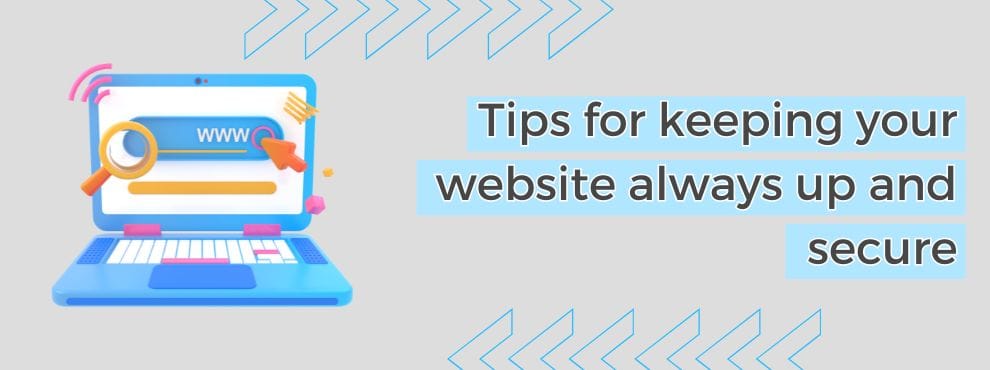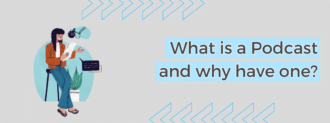In the digital age, your website is the backbone of your online presence, whether you use it for sales, information or services. Keeping it up and secure is critical to providing a positive user experience, building trust and protecting your and your customers’ sensitive information. Without proper care, you run the risk of site crashes, cyber-attacks and a significant loss of reputation and sales.
In this article we share practical and effective tips to ensure that your website is always up and running and protected from common threats.
Table of contents
Make frequent backups
One of the most essential aspects of securing your website is to perform regular backups. Backups allow you to restore your site quickly in the event of a crash, attack or human error.
Be sure to schedule automatic backups and keep multiple versions stored in secure locations, such as cloud storage services. Don’t rely only on the copies provided by your hosting provider, as you may also need quick and direct access to your own backups.
Keep all components up to date
Content management systems (CMS) such as WordPress, Magento or PrestaShop are at the heart of many stores and websites. The developers of these CMSs and their extensions release frequent updates to improve security and performance.
Don’t put off updates to your software, themes or plugins, as outdated versions are often a prime target for hackers. Implement a regular maintenance schedule to review and apply necessary updates, and if possible, automate this process whenever pre-testing allows.
Use SSL certificates for secure browsing
The use of an SSL (Secure Sockets Layer) certificate is essential to protect the communication between the user’s browser and your server. An SSL-enabled website can be recognized by the “https” prefix and the padlock icon next to the URL, indicating that the data is encrypted and secure.
In addition to the security it provides, search engines such as Google prioritize secure sites in their search results. If you have not yet implemented SSL on your site, do so as soon as possible to protect both your users and your SEO rankings.
Implement proactive security measures
Prevention is key to keeping your site secure. Some proactive actions include:
- Strong Passwords: Use complex combinations of letters, numbers and symbols for all access related to your site.
- Two-Factor Authentication: Enabling this measure provides an additional layer of protection, as it requires a second verification step.
- Security Monitoring: Use automatic scanning tools to detect vulnerabilities and possible intrusions.
These practices not only make unauthorized access more difficult, but also provide early warning of any suspicious activity.
Optimize performance to avoid crashes
A slow or unstable site can cause frequent crashes, affecting the user experience and reducing your conversions. Performance optimization not only improves speed, but also site stability.
To achieve this:
- Use a Caching System: Caching reduces server load by delivering static content faster.
- Minimize Files: Compress and reduce the size of CSS, JavaScript and image files.
- Hire a Reliable Hosting: Choose a provider that guarantees high availability and offers effective technical support.
The combination of these techniques ensures smooth browsing and reduces the probability of interruptions.
Perform regular security audits
Auditing your site regularly is essential to identify potential flaws and maintain security. These audits should include:
- Code reviews to detect vulnerabilities.
- User permissions and access checks.
- Assessments of compliance with regulations such as GDPR, if you handle European user data.
Hiring security experts or using specialized tools will allow you to detect problems before they affect your operation.
Educate your team and your users
Security also depends on the human factor. Make sure your team is well trained to handle sensitive data, avoid suspicious links and recognize phishing attempts.
For your users, offer clear security tips when creating passwords or logging into your site. An environment where everyone involved understands their role in data protection is much safer.
Conclusion
Maintaining an active and secure website is a constant effort that requires attention and proactive action. By implementing the measures described above, you will not only protect your platform from potential threats, but you will also improve the user experience, trust in your brand and your search engine rankings.
Remember that at IDX Innovadeluxe we have specialized services for the management and security of online stores and websites. If you need advice or customized solutions, our team is here to help you grow safely and efficiently.
Related Posts



Deja un comentario